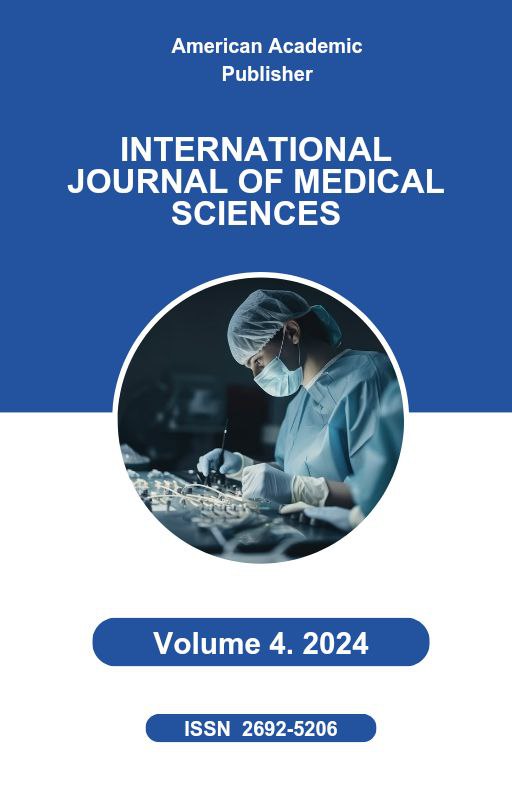 Articles
| Open Access |
https://doi.org/10.55640/
Articles
| Open Access |
https://doi.org/10.55640/
NEW WORLD-STANDARD TECHNOLOGIES IN ABDOMINAL SURGERY: A CONTEMPORARY REVIEW
Botirov Akrom Qodiraliyevich, Abdulhayeva Barnokhon Khabibullo kizi , Andijan State Medical Institute , UzbekistanAbstract
Abdominal surgery remains one of the most rapidly evolving domains in operative medicine, where the integration of innovative technologies has revolutionized patient outcomes. The shift from traditional open approaches to minimally invasive and robotic-assisted methods reflects the global alignment with evidence-based surgical standards. This article reviews contemporary technologies currently applied in abdominal surgery, focusing on laparoscopy, robotic platforms, enhanced imaging, artificial intelligence (AI), and perioperative innovations such as enhanced recovery protocols. Methodological emphasis is placed on analyzing international guidelines, multicenter trials, and meta-analyses that establish these technologies as part of world-recognized standards. Results demonstrate reduced postoperative morbidity, shorter hospital stays, improved precision, and enhanced patient satisfaction when advanced technologies are applied. Discussion explores both the benefits and challenges, including cost, accessibility, and training demands, while underlining the critical role of standardized protocols in achieving reproducible results. It is concluded that abdominal surgery has entered an era of technological integration where patient safety, efficiency, and outcomes are driven by the adoption of globally standardized innovations.
Keywords
Abdominal surgery, laparoscopy, robotic surgery, artificial intelligence, enhanced recovery, imaging technologies
References
Boni, L., Fingerhut, A., Marzorati, A., Rausei, S., Dionigi, G., & Benevento, A. (2017). Laparoscopic surgery: A global view. World Journal of Gastroenterology, 23(41), 7259–7269. https://doi.org/10.3748/wjg.v23.i41.7259
Giulianotti, P. C., Bianco, F. M., Daskalaki, D., Gonzalez-Ciccarelli, L. F., & Benedetti, E. (2018). Robotic surgery of the liver: techniques and results. Surgical Clinics of North America, 90(4), 761–774. https://doi.org/10.1016/j.suc.2010.04.015
Wakabayashi, G., Cherqui, D., Geller, D. A., Buell, J. F., Kaneko, H., Han, H. S., … & Kokudo, N. (2015). Recommendations for laparoscopic liver resection: A report from the second international consensus conference held in Morioka. Annals of Surgery, 261(4), 619–629. https://doi.org/10.1097/SLA.0000000000001184
van der Pas, M. H., Haglind, E., Cuesta, M. A., Fürst, A., Lacy, A. M., Hop, W. C., … & Bonjer, H. J. (2013). Laparoscopic versus open surgery for rectal cancer (COLOR II): short-term outcomes of a randomised, phase 3 trial. The Lancet Oncology, 14(3), 210–218. https://doi.org/10.1016/S1470-2045(13)70016-0
Jayaraman, S., & Schlachta, C. M. (2020). Advances in minimally invasive surgery: a review of current practices and future directions. Canadian Journal of Surgery, 63(1), E72–E80. https://doi.org/10.1503/cjs.015019
Diana, M., & Marescaux, J. (2015). Robotic surgery. British Journal of Surgery, 102(2), e15–e28. https://doi.org/10.1002/bjs.9711
Article Statistics
Downloads
Copyright License

This work is licensed under a Creative Commons Attribution 4.0 International License.

